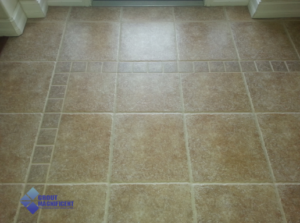How Often Should I Clean My Tile Floors?
Tile floors are a popular choice for many homeowners due to their durability, aesthetic appeal, and ease of maintenance. However, to keep them looking their best, it’s essential to clean them regularly. But how often should you clean your tile floors? The answer depends on several factors, including the type of tile, the amount of foot traffic, and the specific areas of your home where the tiles are installed. Here’s a comprehensive guide to help you determine the best cleaning schedule for your tile floors.
1. Daily Maintenance

2. Weekly Cleaning
In addition to daily sweeping, mopping your tile floors once a week is recommended. This helps to remove any grime or spills that sweeping alone might miss. Use a mild detergent mixed with warm water for mopping. Avoid using sponge mops as they tend to push dirty water into the grout lines, making them harder to clean. Instead, opt for a chamois or microfiber mop, which is more effective at picking up dirt without leaving streaks.
3. Monthly Deep Cleaning
Even with regular sweeping and mopping, tile floors can benefit from a more thorough cleaning once a month. This involves scrubbing the tiles and grout lines to remove any built-up dirt and stains. A mixture of baking soda and water can be used to scrub the grout lines, while a gentle tile cleaner can be applied to the tiles themselves. Rinse thoroughly with clean water to remove any residue.
4. Spot Cleaning as Needed
Spills and stains should be cleaned up immediately to prevent them from setting in and becoming more difficult to remove. This is especially important for kitchen and bathroom tiles, where food, grease, and soap scum can quickly accumulate. Use a damp cloth or sponge with a mild cleaner to wipe up spills as soon as they occur.
5. Seasonal or Annual Professional Cleaning
For a truly deep clean, consider hiring a professional cleaning service like Grout Magnificent. They specialize in tile and grout cleaning and can help restore your floors to their original shine. Professional cleaning is recommended at least once a year, or more frequently if your tiles are exposed to heavy use or if you notice significant staining or discoloration. Grout Magnificent serves all of Lee County, Florida, and can be reached at (239) 476-8855 or through their website Grout Magnificent.
6. Special Considerations for Different Types of Tile
Different types of tile require different care. For example, ceramic and porcelain tiles are relatively low maintenance and can be cleaned with most household cleaners. However, natural stone tiles like marble, granite, and slate require special care to avoid damage. Always use pH-neutral cleaners on natural stone tiles and avoid acidic or abrasive cleaners that can etch the surface.
7. Maintaining Grout Lines
Clean grout lines are essential for maintaining the overall appearance of your tile floors. Dirty or discolored grout can make even the cleanest tiles look dull. In addition to regular cleaning, consider sealing your grout lines once a year to protect them from stains and moisture. This can be done by a professional service like Grout Magnificent, ensuring a long-lasting and pristine finish.
Conclusion
Regular cleaning and maintenance are key to keeping your tile floors looking their best. By following a consistent cleaning schedule and addressing spills and stains promptly, you can enjoy beautiful, shiny tile floors for years to come. For those times when you need a deeper clean, don’t hesitate to contact Grout Magnificent for professional tile and grout cleaning services in Lee County, Florida. Reach them at (239) 476-8855 or visit their website Grout Magnificent for more information.
